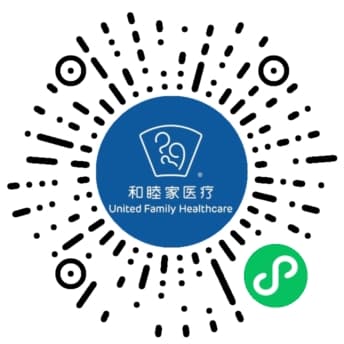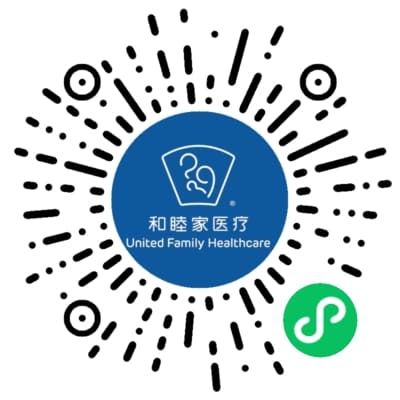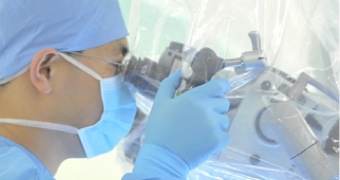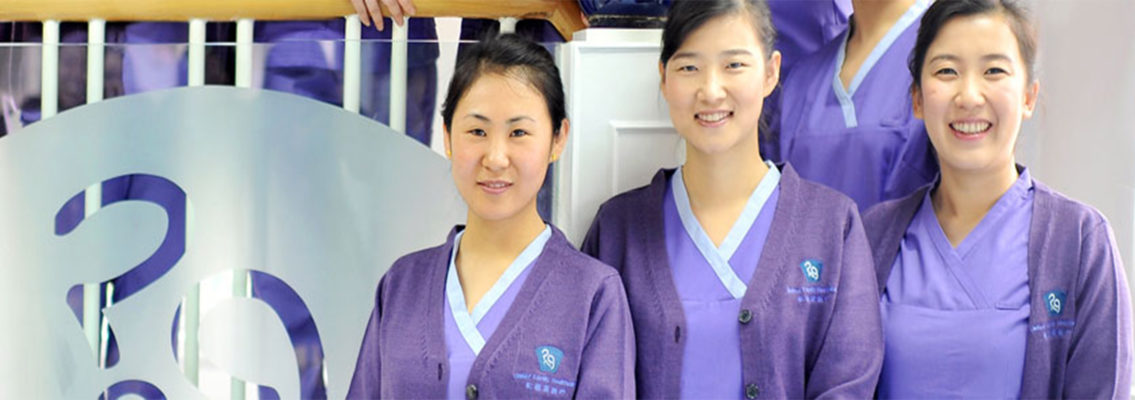Nursing is a key part of medical treatment, and nurses play an irreplaceable role in assisting with treatment, saving lives, relieving pain, promoting recovery, and improving the results of medical treatment. As health care reform in China further deepens, the speed of population aging accelerates, the incidence of chronic disease increases, and the two-child policy opens to all, society’s demand for nursing grows and people’s requirements for nurses become higher.

In celebration of the 2018 International Nurses Day, United Family Healthcare (UFH) held a forum with the theme of “Kind-Hearted Medical Practitioners Always by Your Side: Nursing Value Innovation” on April 26. Wu Xinjuan, Chair of China Nursing Association and Director of the Nursing Department in Peking Union Medical College Hospital, Zhang Hongjun, Chair of Beijing Nursing Association, and Zhang Haicheng, President of the Peking University School of Continuing Medical Education, along with nursing colleagues from UFH and public hospitals across China came together to discuss the value, management, and professional development of nursing under new circumstances in the new era.
Nursing Faces New Challenges in the New Era

Wu Xinjuan pointed out that China is the first country in the world to have an aging population of over 200 million. At the end of 2017, the elderly population was 241 million, or 17.3 percent of the national total population, reaching the target set for 2020. It is forecast that by 2050, China’s aging population will reach 480 million, accounting for almost one quarter of the world’s total. At the same time, the incidence of chronic diseases seriously threatening people’s life and health is on the increase. The number of hypertension patients over 18 years of age in China is 270 million, almost one third of the total adults. More than three million people develop malignant tumors each year at an annual growth rate of four percent, and 17.5 percent of people suffer from mental or psychological disorders.

Malignant tumors, heart disease, and cerebrovascular disease have become the main causes of death and disability. These figures show that there will be a growing demand for professional nursing services in China. According to the Healthy China strategy, the focus of healthcare shall be shifted from being “treatment-centered” to “health-centered” and all-round full-cycle health services shall be provided. This presents a new challenge to the profession of nursing in the new era. Since nurses have the closest, most direct and most consistent contact with the patient, they play a key role in building a Healthy China and are responsible for all-round nursing from pregnancy, infancy through to old age. Zhang Haicheng said that nursing in China will be more intensive, more specialized, and more professional in the future so as to meet the diversified needs of patients by providing all-round care and creating an excellent medical treatment environment based on knowledge and innovation.
While society has a greater demand and higher standard for nursing, China is suffering a severe shortage of nurses. According to the World Health Organization (WHO), the United States and Japan have 9.8 and 11.49 nurses for every thousand people, respectively. The basic standard laid out by the European Union is no less than 8 nurses for every thousand people. At the end of 2016 China had 3.507 million registered nurses, only 2.54 per thousand people. A more serious shortage is seen in specialist nurses. At the forum, Zhang Hongjun mentioned that specialist nursing in China already covers over twenty areas including critical diseases, emergency treatment, wound and ostomy care, operating theaters, geriatrics, organ transplants, tumors, and diabetes. As an important factor for improving the treatment outcomes of patients, specialist nurses play an irreplaceable role in routine nursing care, ward management, and the formulation of treatment plans for severe patients. “An excellent specialist nurse, particularly an expert-type nurse, is crucial to raising the quality of nursing and safeguarding the patient’s safety,” Zhang Hongjun said.
Nurses’ Professional Value Should Be Manifested

The current working and living environment of Chinese nurses is not satisfactory. Statistics show that 90.4 percent of China’s nurses work over forty hours each week, 78.96 percent have been wounded with a sharp instrument, 51.22 percent have suffered psychological trauma, less than 40 percent have received training in specialist nursing, and less than 30 percent have got an opportunity of promotion or financial support for training from their employers. Factors such as high intensity of work, high stress, low salary, and poor sense of honor, and lack of career development opportunities have made more and more nurses quit their jobs to engage in other professions. For this situation, Zhang Hongjun said, “The key to retaining nurses is to embody their professional value by offering better pay and providing platforms or opportunities for their career promotion.”
Zhang Haicheng believes that salary is a very important element in the above-mentioned problem, saying “A decent salary reflects the professional value of our nurses. However, most nurses in China lack an excellent education background. Professional nurses are fostered through formal education and life-long learning in the workplace.” So, nursing education is crucial to improving the value of professional nursing. In the core value index system of nursing, professional spirit, ethics, perception, and practice are classified as primary indexes. On this basis, secondary indexes include service awareness, nursing ethics, professional emotion, clinical practice, scientific research, and management. Tertiary indexes are finer ones including humanistic concern, teamwork, sense of responsibility, and sympathy. According to a survey made by a hospital, 81.7 percent of its 282 clinicians are basically satisfied with the work of the nurses, but they think what the nurses lack most are special knowledge, professional skills, communication skills, sufficient understanding of common drugs, and the ability to observe and deal with severe patients.
Shen Xiaoyan, Vice President and Chief Nursing Officer of UFH, holds the same view. She stressed that UFH operates a system where medical treatment, nursing, and administration are separated, each of which is independent but works with the other two. This organizational structure greatly increases the weight of nursing, forming an all-round integrated nursing model. Tertiary hospitals in China have nurse/bed ratio of 0.6 (meaning 0.6 nurses per bed) while the ratio is as high as 2.5 at UFH. With respect to the professional development of nurses, the career ladder for UFH nurses comprises four different grades (ranging from grade one to grade four). Each September, our nurses participate in an annual examination to gain promotion. Due to high difficulty, the examination is jokingly called “UFH Gaokao (college entrance examination in Chinese Pinyin).” UFH also has long-term training plans for different nurses at different levels. They can choose their own development direction such as clinical nursing, nursing education, or nursing management. This maximizes the inner motivation of the staff. At the same time, UFH also provides its nurses with training plans such as basic life support (BLS) training, infection control training, nursing skills, and nursing skill laboratory training. Sylvia Pan, General Manager of Beijing UFH Hospital, has persisted in integrating the development of staff with that of the hospital in the past decade. UFH nurses have the autonomy of making decisions within the scope of nursing services, and they have the right to voice their own views in the development of evidence-based practices. The comprehensive application of these systems and methods enables the nurses to maintain their professionalism, compassion, and sense of pride, creating a nursing model that is unique to UFH.
Nursing in China Needs To Go Beyond Hospitals and Spread to Communities
Wu Xinjuan stressed that more nursing resources in China should be allocated to local communities in the future instead of being concentrated in hospitals so as to form an all-round health care model comprising clinical nursing, community nursing, home nursing, palliative care, and health promotion; that more emphasis should be laid on disease prevention and health education; that the concept of nursing should be changed from focusing on medical treatment to promoting health through “three-level prevention” and better management of chronic diseases; and that excellent nurses should be better paid so as to retain them and attract more people to the profession of nursing.
“Since 1997, UFH has been providing lifecycle medical services and all-round nursing services,” said Roberta Lipson, CEO and Board Chair of UFH. Nursing is a branch of the UFH model. As a foreign-funded medical establishment that has been operating in China for 21 years, UFH promotes the concept of continuous care, and has established a complete healthcare service chain ranging from disease prevention, diagnosis, treatment, recovery to palliative care, realizing lifecycle barrier-free medical services from hospital to home, and from home to hospital. With patients as the center, personalized medical plans are formulated to form a closed loop of health care for the patient and his/her family. “UFH’s Home Health is an example of nursing services going out of the hospital to reach the community. We are seeing increasing numbers of families benefiting from this service,” added Jessie Yang, General Manager of UFH Satellite Clinics in Beijing.
Zhang Hongjun stressed the importance of nurturing specialist nurses, improving training models, standardizing undergraduate and postgraduate nursing education, and promoting diversified development of nurses. Zhang also laid emphasis on improving the qualification certification and admittance criteria for specialist nurses with hospitals providing the platform and opportunity for nurses to strengthen their practical ability, and on formulating national laws and regulations for specialist nursing.










